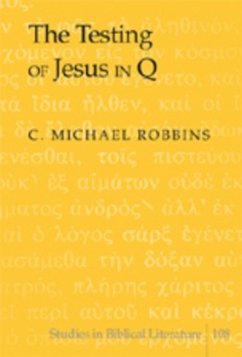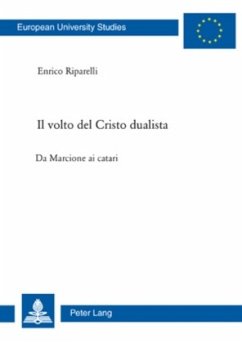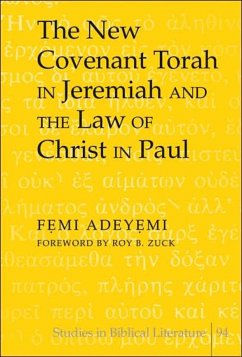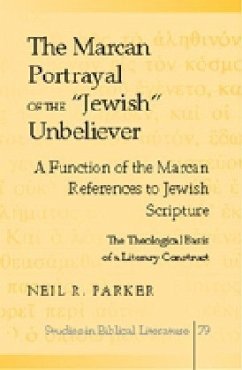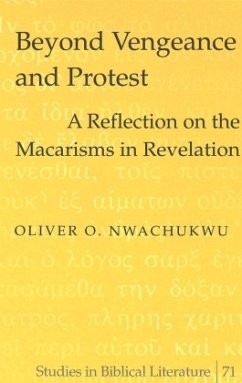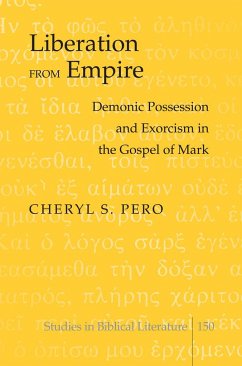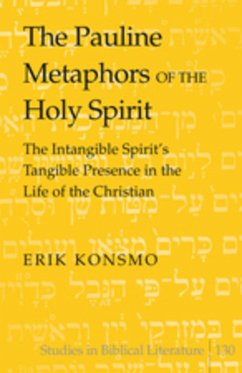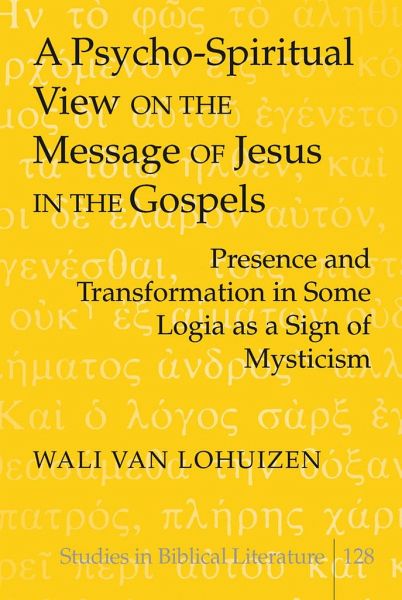
A Psycho-Spiritual View on the Message of Jesus in the Gospels
Presence and Transformation in Some Logia as a Sign of Mysticism

PAYBACK Punkte
0 °P sammeln!
A Psycho-Spiritual View on the Message of Jesus in the Gospels explores elements of mysticism in the words of Jesus. Four fields are analyzed with the help of two key concepts of mysticism: presence of the divine and transformation of the self. Analyses, semantic and otherwise, reveal alternative understandings on each of the four fields. Psuchê appears as 'self' ('mind-and-heart') rather than as 'life,' for example, in the Good Shepherd passage (dedicating one's self), or in the saving and losing logia in Mark 8.35 par, calling for transformation. Pneuma in the Gospels appears both in a def...
A Psycho-Spiritual View on the Message of Jesus in the Gospels explores elements of mysticism in the words of Jesus. Four fields are analyzed with the help of two key concepts of mysticism: presence of the divine and transformation of the self. Analyses, semantic and otherwise, reveal alternative understandings on each of the four fields.
Psuchê appears as 'self' ('mind-and-heart') rather than as 'life,' for example, in the Good Shepherd passage (dedicating one's self), or in the saving and losing logia in Mark 8.35 par, calling for transformation. Pneuma in the Gospels appears both in a definite form and indefinitely: next to the Holy Spirit, there is holy spirit active and present, implying that baptism literally is immersing in holy spirit. Repentance (metanoia) is alternatively to be understood as transformation of the self, and is not necessarily connected to 'sin.'
Finally, the Kingdom of God, in line with theologian Adolf von Harnack, is found to be present (it has approached,êggiken) and is a reality inside (entos) the human being, a mustêrion, apart from its references to the eschaton or to a paradisiacal new world. Parables teach about the Kingdom as a spiritual entity in and around the human being: presence of the divine, closely connected with transformation of the self. These findings open up to a psycho-spiritual understanding of the message (euaggelion) of Jesus.
Psuchê appears as 'self' ('mind-and-heart') rather than as 'life,' for example, in the Good Shepherd passage (dedicating one's self), or in the saving and losing logia in Mark 8.35 par, calling for transformation. Pneuma in the Gospels appears both in a definite form and indefinitely: next to the Holy Spirit, there is holy spirit active and present, implying that baptism literally is immersing in holy spirit. Repentance (metanoia) is alternatively to be understood as transformation of the self, and is not necessarily connected to 'sin.'
Finally, the Kingdom of God, in line with theologian Adolf von Harnack, is found to be present (it has approached,êggiken) and is a reality inside (entos) the human being, a mustêrion, apart from its references to the eschaton or to a paradisiacal new world. Parables teach about the Kingdom as a spiritual entity in and around the human being: presence of the divine, closely connected with transformation of the self. These findings open up to a psycho-spiritual understanding of the message (euaggelion) of Jesus.






